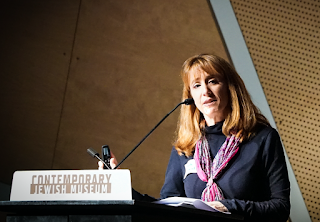 |
| Sam Piha |
 |
| Jodi Grant, Executive Director Afterschool Alliance |
A: The new administration has not made any public comments about afterschool and expanded learning. For this reason it is more important than ever that we all reach out to members of the administration to educate them about the value of learning outside the school day and remind them that students spend 80% of their waking hours outside school. New education proposals should also include support for afterschool and summer.
Q: What can we expect of the newly confirmed Secretary of Education, Betsy DeVos?
A: Education Secretary Betsy DeVos has shown some interest in afterschool. As a philanthropist she invested in Boys and Girls Clubs and in a research study for Campfire USA. In response to a written question from Senator Al Franken after her hearing she responded:
 |
| Betsy DeVos, Secretary of Education Photo Credit: npr.org |
Q: In looking ahead to a new presidential administration, are there any opportunities that we should be aware of and how can the afterschool movement embrace these opportunities?
A: During his campaign, candidate Trump embraced a tax cut for childcare. This tax cut, geared towards middle class families, can be used for afterschool programs and that is a promising sign. In addition, President Trump has been a longtime member of the Board of the New York City Police Athletic League, which could be viewed as a sign of support for afterschool programs.
Afterschool is an education priority consistent with many of the priorities of the new Administration including support for rural America. Rural communities are unlikely to benefit from an investment in vouchers and charter schools. But they will benefit from afterschool and we have many rural communities that rely on 21st CCLC and afterschool to inspire their students and help working parents keep their jobs. In addition, we all know that afterschool programs make our kids and all our communities safer.
 |
| Photo Credit: summermatters.net |
We also see synergy between afterschool and the incoming Administration’s emphasis on jobs, workforce development and economic growth: afterschool and summer learning programs for older youth can play a key role in providing work and life skills while also helping parents keep their jobs and their children safe.
Q: What should we be prepared to do to ensure ongoing support for afterschool/expanded learning?
A: The new Administration wants to give parents more educational options for students; and school-community partnerships, faith based providers and community based organizations that offer quality summer and afterschool programs can be part of that broad range of supports that maximize the potential of young people.
The gravest danger to afterschool in 2017 will be funding. Congress and the Trump administration are discussing drastic cuts to education spending. It will be essential to reach out to members of Congress to make sure they protect funding for afterschool and summer programs. We need to use the data and examples we have that show these programs save money by investing in our youth now.
Our field needs to rally constituents to tell each member of Congress why programs are so important to students and families in their district. The message of crime prevention and discouraging inappropriate and unwanted behavior is also a powerful message. Most of all, don’t forget the most important messengers, the students themselves. When they speak they can energize a room with their authenticity and show rather than tell why afterschool investments are essential in every community in our country.
—————
Jodi Grant, Executive Director, Afterschool Alliance
The Afterschool Alliance is a nonprofit public awareness and advocacy organization working to ensure that all children and youth have access to quality, affordable afterschool programs. Jodi oversees all aspects of the Afterschool Alliance’s work, including supervising research, and creating and expanding quality afterschool programs.
 |
| Jodi Grant at the How Kids Learn VI Conference, San Francisco 2016 |




No comments:
Post a Comment